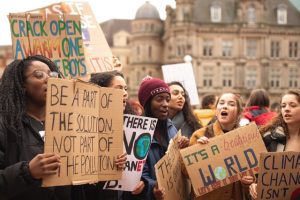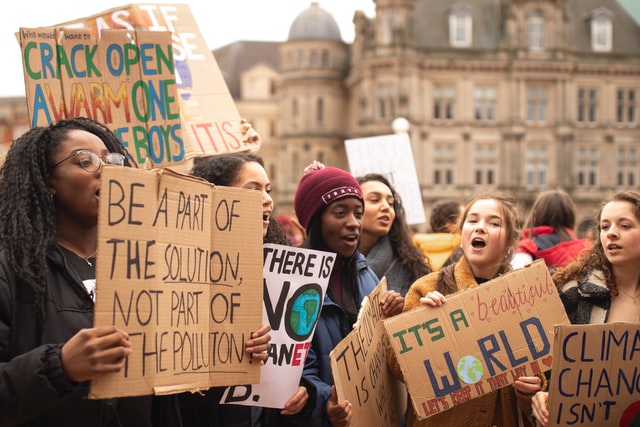COP26 has concluded in Glasgow with nearly 200 countries agreeing on the Glasgow Climate Pact and to keep the 1.5 degrees Celsius target active and also achieve the outstanding elements of the Paris Agreement.
The Glasgow meeting was the 26th session of the Conference of Parties (COP) to the UN Framework Convention on Climate Change. The COP 26 summit succeeded in getting 197 countries to come for the discussion.
The summit came at the back of a pandemic, global tensions, and a series of multiple climate-related conversations between various countries, held in the last six months, most notably the leader’s summit held virtually in April 2021.
After two weeks of high-profile speeches, roundtable conferences, fireside chats, commitments & exchanges, the annual climate change summit came to an end on the 13th of November with the adoption of an agreement called the Glasgow Climate Pact. The final agreement took multiple rounds of back and forth between countries before it was announced.
Let us take a look at key takeaways from the COP 26 summit.
Countries agreed on action on “phasing down” fossil fuels and coal. The word “phasing down” went through umpteen rounds of negotiations between the developing and developed countries. The initial call to “phase-out” coal power was substituted, the final version of the Glasgow Climate Pact used “phase-down” to describe what needs to happen to coal use.
One big achievement of the COP 26 summit is the first time explicit mention of the word coal in UN documents of this type.
Over 100 countries pledged to reduce methane emissions by at least 30 percent from present levels by 2030. Considering methane is one of the potent greenhouse gas, short-lived in the atmosphere than carbon dioxide but 80 times more potent in warming the earth, this is a significant commitment.
All countries agreed to revisit and strengthen their current emissions targets to 2030, known as Nationally Determined Contributions (NDCs), in 2022.
Two years ago, only 30% of the world was covered by net-zero targets, but with the new commitments, the figure is now exploded to around 90%.
 The countries reaffirmed their pledge of providing 100 billion dollars annually from developed to developing countries. Climate finance is a contentious issue among the developed and developing world. However, there is a reason for the apprehension, as the previous pledge made in 2009 by developed nations to contribute $100bn per year to emerging economies, which was supposed to have been delivered by 2020, remained unmet.
The countries reaffirmed their pledge of providing 100 billion dollars annually from developed to developing countries. Climate finance is a contentious issue among the developed and developing world. However, there is a reason for the apprehension, as the previous pledge made in 2009 by developed nations to contribute $100bn per year to emerging economies, which was supposed to have been delivered by 2020, remained unmet.
More than 100 countries have promised to end deforestation by end of this decade. The signatories include Brazil, home to the Amazon rainforest.
In the parallel discussion, the world’s top emitters, the United States and China, agreed to boost collaboration on combating climate change over the next decade.
In another roundtable, some of the leading car manufacturers decided to work together to make all new car sales zero-emission by 2040 and by 2035 in leading markets.
This is what leading voices have to say about the Glasgow COP 26 summit.
The COP26 outcome is a compromise, reflecting the interests, contradictions & state of political will in the world today. It’s an important step, but it’s not enough. It’s time to go into emergency mode. The climate battle is the fight of our lives & that fight must be won.– António Guterres, Secretary-General of the United Nations
I am really pleased that this has been delivered. It is down to the hard work of the UK team; the hard work of all the Parties; the great cooperation that we have seen from all negotiators, and from all ministers; and right at the start of the summit, world leaders came out and set out what they wanted delivered out of this event. I would say, however, that this is a fragile win. – Alok Sharma, President of COP26.
We’ve kept 1.5 alive and made huge progress on coal, cars, cash and trees. And while there is still so much that needs to be done to save our planet, we’ll look back at COP26 as the moment humanity finally got real about climate change. – Boris Johnson, Prime Minister of United Kingdom and host of COP26.
The only reason we got what we did is because young people, Indigenous leaders, activists and countries on the climate frontline forced concessions that were grudgingly given. Without them, these climate talks would have flopped completely. – Jennifer Morgan, Executive Director of Greenpeace International.






Add comment